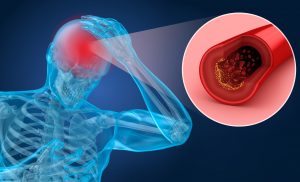Cavernous Malformations
{{SearchTerm}}
Seek immediate medical attention if you are experiencing this symptom.
We didn’t find an exact match for your request. Here are others to consider:
The closest doctor is {{ ClosestMiles }} miles away.
There are no results within {{ SelectedMiles }} miles of your location. Please find closest below:
Physician specialty matches Doctor Results for {{ SearchTerm }}{{ CommonSearchTermValue }}{{ BySpecialties }} near {{ ByZipCode }}
{{Title}}
{{physician.FirstName}} {{physician.LastName}}, {{physician.Title}}
{{PrintSpecialties(physician.Specialties, "Name")}}

miles
{{addressInfo(physician.Addresses, 0, "Group")}}
- {{addressInfo(physician.Addresses, 0, "Address1")}}
- {{addressInfo(physician.Addresses, 0, "Address2")}}
- {{addressInfo(physician.Addresses, 0, "City")}}{{VueFilterInfo(physician.Addresses,0,'State') ? ',' : '' }} {{addressInfo(physician.Addresses, 0, "State")}} {{addressInfo(physician.Addresses, 0, "Zip")}}
Your selected filters found no results. Please adjust your filter selection.
Please Wait Details Loading.
{{PhysicianDetails.FirstName}} {{PhysicianDetails.LastName}}, {{PhysicianDetails.Title}}
{{ PrintSpecialties(PhysicianDetails.Specialties, "Name")}}
Primary Location
{{ addressInfo(PhysicianDetails.Addresses, 0, "Group")}}
- {{addressInfo(PhysicianDetails.Addresses, 0, "Address1")}}
- {{addressInfo(PhysicianDetails.Addresses, 0, "Address2")}}
- {{addressInfo(PhysicianDetails.Addresses, 0, "City")}}{{VueFilterInfo(PhysicianDetails.Addresses,0,'State') ? ',' : '' }} {{addressInfo(PhysicianDetails.Addresses, 0, "State")}} {{addressInfo(PhysicianDetails.Addresses, 0, "Zip")}}
Languages Spoken
{{item.Name}}
Gender
{{PhysicianDetails.Gender === "M" ? "Male" : "Female"}}
About {{PhysicianDetails.FirstName}} {{PhysicianDetails.LastName}}, {{PhysicianDetails.Title}}
{{ SliceAboutMe(PhysicianDetails.AboutMe) }}
Read more about {{PhysicianDetails.FirstName}} {{PhysicianDetails.LastName}}, {{PhysicianDetails.Title}} Read less about {{PhysicianDetails.FirstName}} {{PhysicianDetails.LastName}}, {{PhysicianDetails.Title}}
- {{item.Name}}
-
{{item.Name}}
-
{{item.Name}}
The following insurance plans may be accepted by this provider. Please contact the provider's office directly to confirm insurance plans accepted.
Please contact this provider's office directly to determine insurance plans accepted.
- {{item.Payor}}
- {{item.Name}}
- {{item.Type == 'F' ? 'Fellowship' : ''}}{{item.Type == 'M' ? 'Medical School' : ''}}{{item.Type == 'I' ? 'Internship' : ''}}{{item.Type == 'R' ? 'Residency' : ''}}: {{item.Description}}
Patient Comments
Primary Location
{{addressInfo(PhysicianDetails.Addresses, 0, "Group")}}
- {{addressInfo(PhysicianDetails.Addresses, 0, "Address1")}}
- {{addressInfo(PhysicianDetails.Addresses, 0, "Address2")}}
- {{addressInfo(PhysicianDetails.Addresses, 0, "City")}}{{VueFilterInfo(PhysicianDetails.Addresses,0,'State') ? ',' : '' }} {{addressInfo(PhysicianDetails.Addresses, 0, "State")}} {{addressInfo(PhysicianDetails.Addresses, 0, "Zip")}}
Languages Spoken
{{item.Name}}
Gender
{{PhysicianDetails.Gender === "M" ? "Male" : "Female"}}
Where to Find {{PhysicianDetails.FirstName}} {{PhysicianDetails.LastName}}, {{PhysicianDetails.Title}}
#ResourceNotFound: PhysicianFinderResources, Miles2#
{{plocation.Group}}
- {{plocation.Address1}}
- {{plocation.Address2}}
- {{plocation.City}}{{plocation.State ? ',' : '' }} {{plocation.State}} {{plocation.Zip}}



